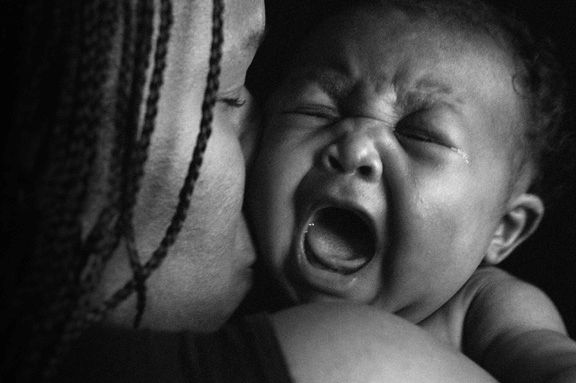Understand that crying is a baby's way of communicating. Crying is the only way that babies have to express their needs and feelings. It is important to understand that crying is not a sign of bad behavior, but rather a sign of a baby's need for attention and care.

1. Respond quickly to your baby's cries
The longer a baby cries, the more difficult it becomes to comfort them. By responding quickly to your baby's cries, you can help them feel safe and secure, which can help to reduce the amount of crying.
2. Try to identify the cause of your baby's cries
Is your baby hungry, tired, in need of a diaper change, or experiencing discomfort from colic or teething? Identifying the cause of your baby's cries can help you to address their needs more effectively.
Did you read this?
3. Use a soothing tone of voice when talking to your baby
Your baby is more likely to calm down if you speak to them in a soothing and calm tone of voice. Avoid raising your voice or sounding frustrated, as this can cause your baby to become more upset.
4. Rock your baby gently
Rocking your baby gently can help to soothe them and reduce the amount of crying. You can also try swaying or bouncing your baby gently while holding them.

5. Use a pacifier
A pacifier can help to soothe a fussy baby by providing them with a source of comfort. Just make sure that you follow the recommended guidelines for using pacifiers, such as avoiding the use of pacifiers during the night and never forcing a pacifier on a baby who does not want to use one.
6. Try a baby carrier
Carrying your baby in a carrier can help to calm them down by providing them with the physical closeness and warmth that they need. It also allows you to have your hands free for other tasks.
7. Use white noise
White noise, such as the sound of a fan or a white noise machine, can help to soothe a crying baby by blocking out other distracting sounds.
8. Take a break if you need it
Caring for a crying baby can be emotionally and physically draining. It is important to take a break if you need it, whether it's for a few minutes or for a longer period of time.
9. Remember that crying is a normal part of being a baby
Crying is a normal part of being a baby, and it is important to remember that it is not a sign of bad behavior. Crying is a normal part of a baby's development and will eventually decrease as they grow and learn to communicate in other ways.

Overall, managing a baby's cries can be a challenging task for new parents. But by understanding that crying is a baby's way of communicating, responding quickly to their cries, identifying the cause of their cries, using a soothing tone of voice, rocking or swaying them, providing a pacifier or a baby carrier, using white noise, taking a break when needed and remembering that crying is a normal part of being a baby, parents can help to reduce the amount of crying and comfort their baby. Remember that you can always seek advice from a pediatrician or a lactation consultant if you are concerned about your baby's crying.












